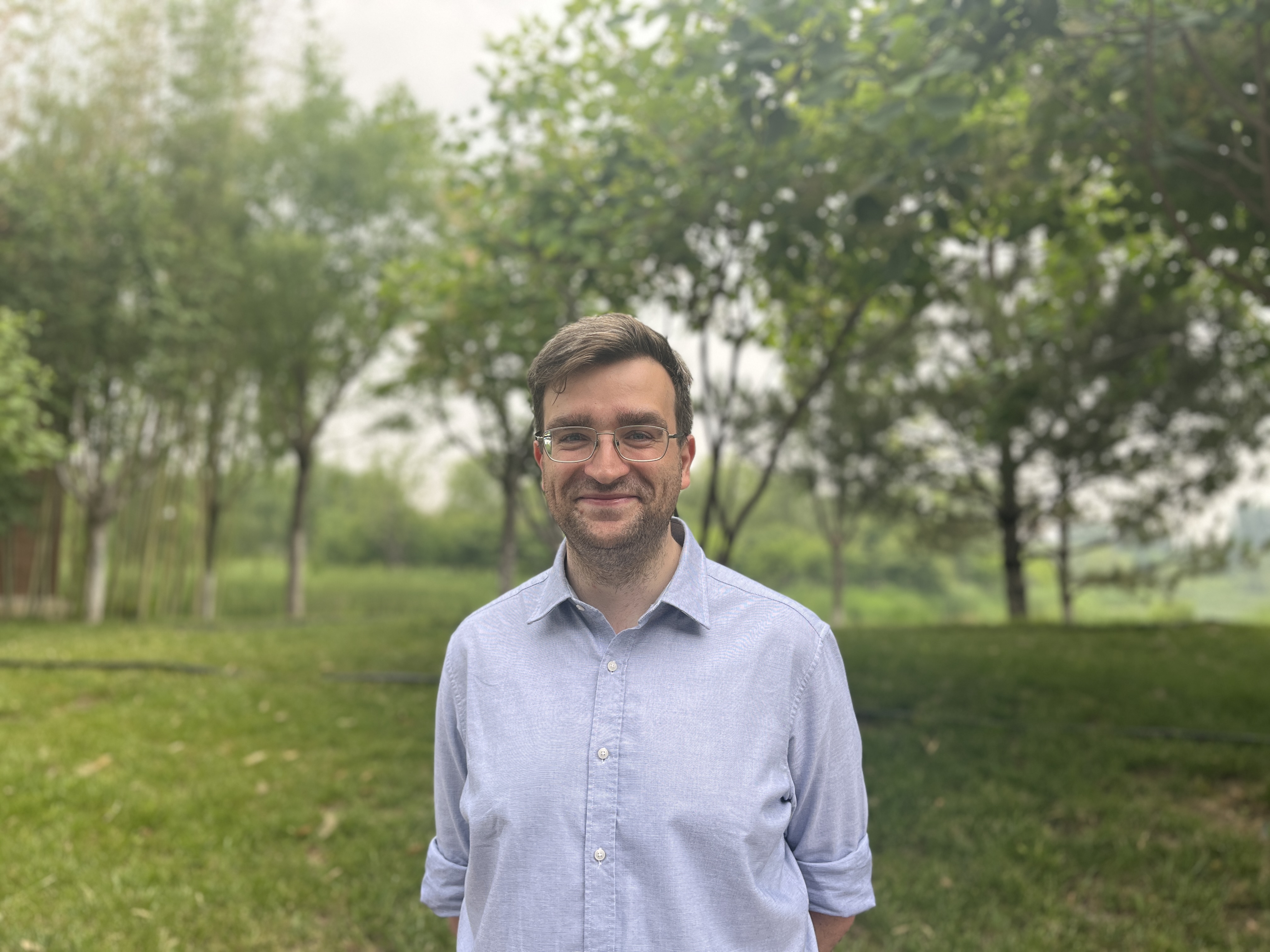Passion Trumps Challenges
By LONG Yun & BI Weizi

Dr. Thomas Meier. (PHOTO:S&T Daily)
Thomas Meier, a young German scientist from the Center for High-Pressure Science & Technology Advanced Research (HPSTAR), delivered a vivid science outreach lecture on high-pressure science, which resonated with audiences of all ages. Despite its complexity, Meier used his humor and creativity to bring the subject closer to the audience.
Dedicated to high-pressure science
"High-pressure science is the study of matter under extreme conditions," Meier told Science and Technology Daily. High-pressure science plays a crucial role in modern solid-state physics and materials science. Meier's primary research focuses on developing and implementing high-frequency solid-state spectroscopy in diamond anvil cells (DAC). DACs, equipped with two flattened diamond tips, enable scientists to create extreme conditions similar to those found in the center of Earth.
Meier's research involves finding ways to extract more detailed information from high-pressure samples by implementing a method called Nuclear Magnetic Resonance (NMR) in DACs. NMR, a widely used spectroscopic method in various scientific disciplines, including medical imaging, is relatively unexplored in high-pressure science.
Basic science matters
When asked about the impact of his work on social development, Meier acknowledged that it is difficult to predict direct social influence stemming from basic scientific research. However, he emphasized that the pursuit of knowledge and understanding serves as a driving force behind social development. Meier firmly believes that basic science plays a vital role in broadening our understanding of nature and the world, even if their practical implications may take decades to materialize.
Regarding the challenges faced within his professional field, Meier said that high-pressure science, a multidisciplinary field often perceived as a joint effort of various disciplines, presents additional obstacles for researchers. As a result, nurturing a successful career entails seeking recognition and support from counterparts in the field.
Meier enjoys his academic journey in spite of the challenges. "Passion will always trump good grades," he said. He encourages the younger generation to be driven by passion rather than focusing solely on grades or rote memorization. As he mentioned in his speech, while academic achievements and knowledge hold value, true success in the science field stems from deep curiosity and a passion for exploration.
Academic journey to the East
Two years ago, this German scientist embarked on a journey to China, taking up a position as a staff scientist at the HPSTAR. Reflecting on his first impressions of the country, he said, "China struck me as a country with a rich and profound history," adding that the sense of safety on the streets and the convenience of life are "exceptional and almost unrivaled throughout the world."
Meier chose HPSTAR due to its global reputation as a leading high-pressure institution and the exceptional research environment it provides. "At HPSTAR, we receive all the necessary support to fully develop in our respective fields," he said, expressing his satisfaction and fulfillment with his experience at the centre.
China, an integral part of promoting global progress
As a foreign expert working in Beijing, he recognizes China's endeavor to build the city into an international sci-tech innovation hub as a significant contribution to the advancement of science and technology. From his professional perspective, the establishment of research institutes like HPSTAR, and the upcoming synchrotron facility, showcases China's efforts to become a world-class player in high-tech research and development, on par with developed countries such as Germany, UK, and the U.S.
Science sees no borders. According to Meier, China's research institutes actively engage in the international scientific community, participating in collaborative research projects. He emphasized that scientific advancements are now inherently global endeavors. "Multinational collaborations are absolutely crucial for groundbreaking discoveries," he said.
Meier applauded Chinese research institutes making efforts in advancing international scientific progress. "China will play a significant role in scientific discoveries and advancements in the coming decades," he said.
This article is also contributed by LI Xiang from Foreign Talent Research Center, MOST.







